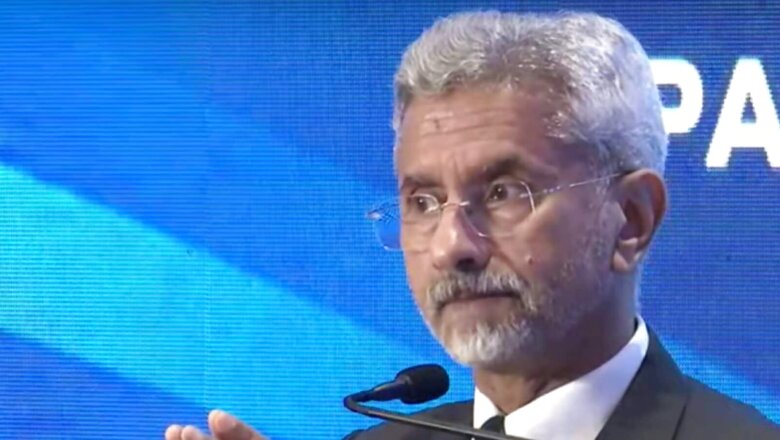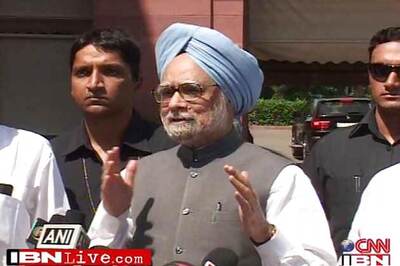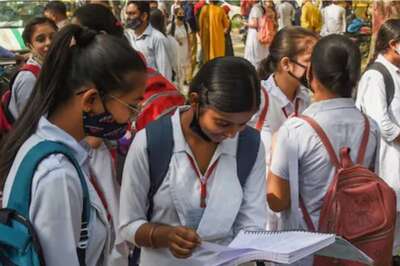
views
Just a few months ago, Sri Lanka watchers were busy spending ink on declaring India as a sore loser in the race for influence to China. But events starting March 2022 have completely changed things and how. In March this year, visuals splashed across our TV screens of hundreds of protesters trying to storm into the house of President Gotabaya Rajapaksa demanding his resignation. By April 1, an emergency was declared in the nation and within 10 days’ time, food, fuel and medicine shortages started making international headlines.
On April 12, Sri Lanka officially announced that it is going to default on its external debt of $51 billion. This set into motion a series of events where protesters started coming out in the streets of Sri Lanka even as the country sought aid and assistance from world over including other countries and international organisations such as IMF. As things stand today, Sri Lankan President Gotabaya Rajapaksa has fled with protesters firmly in control of his Presidential Palace. The entire cabinet including the Prime Minister is set to resign with a new all-party government ready to be sworn in power. Sri Lankan Parliament will also elect a new President next week.
Meanwhile, India is focusing on its own security with stepped-up vigil against any influx of refugees or anti-India elements. Indian Minister of External Affairs Dr S Jaishankar has also expressed his views that it doesn’t look like Sri Lanka will get into a full-blown refugee crisis as India’s attempt is to extend economic help to avert such a situation.
Not just this, the entire way in which India has conducted itself during the Sri Lankan crisis shows that India has really come of age in its neighbourhood diplomacy with a clear sense of purpose and control over key outcomes.
Since the 1990s starting with the Gujral Doctrine of making unilateral concessions to the neighbouring countries for maintaining warm relations with them to PM Manmohan Singh’s outlining of non-reciprocity and asymmetrical benefits for the neighbours, India’s neighbourhood policy has been constantly evolving. Under PM Narendra Modi, the ‘Neighbourhood First’ policy has brought a sharp focus on being the first responder, swift diplomatic action and credible commitment by India. This was clearly visible in India’s Covid-19 diplomacy in South Asia as well.
In the case of the Sri Lankan crisis, India has emerged as the only country in the world to come to its rescue by giving more than $4 billion as loans, financial assistance and credit line on favourable terms. In addition to this, India has also extended food aid and medical aid worth SLR 250 million to Sri Lanka. India has also assisted it in approaching the IMF for a financial bailout. Not just this, India is also working on a long-term plan to help the island nation revive its economy.
In contrast, China has said that any help to Sri Lanka is contingent on it showing adequate foreign exchange reserves for three months. Sri Lanka also sought a $1 billion loan for procuring essentials from China, but China never got back. A $1.5 billion credit-line didn’t materialise either.
In an interview, Gotabaya Rajapaksa said China is not focused on South Asia anymore but its strategic focus has shifted to South-East Asia and Africa. It seems that the Sri Lankan elite overestimated their country’s indispensability to China as the latter sought to become a dominant power in the Indian Ocean. But the current economic crisis has exposed Chinese limitations and disinterest and Sri Lanka’s own vulnerabilities.
In the entire episode, it is India that has emerged as a rising regional power which is also capable of offering ready solutions. But it is not an idealist India that considers helping the neighbour as a moral imperative. India is keenly looking out for securing long-term deals in the island country, understanding fully well the strategic dimension that such foreign aids often involve. This behaviour is more likely of a realist India that’s unabashed about chasing its self-interest by tying help during a crisis to its own strategic goals.
In June, a four-member delegation was sent to Colombo led by Foreign Secretary Vinay Kwatra that discussed investment partnership with Sri Lanka in domains of connectivity, energy, infrastructure, etc. New Delhi is looking to fast-track multiple projects such as the Mannar-Pooneryn wind power plant, West Container Terminal and a solar power plant in Sampur in collaboration with India’s National Thermal Power Corporation. India is also looking to develop Trincomalee Port on Sri Lanka’s north-eastern coast, a fisheries harbour, resumption of ferry services, development of a trans-shipment port, an airport, setting up of a refinery, development of a heavy industries zone and refurbishment of oil tanks. It is also looking to expand Indian presence in petroleum retail in the island nation through the Lanka Indian Oil Corporation which is an Indian Oil subsidiary. Besides this, a proposal for use of Indian Rupee for transaction in Sri Lanka is also on the table.
India’s willingness to help Sri Lanka in its hour of need without losing focus on its own interests is quite unprecedented. It is using the moment to integrate Sri Lanka economically which will also help the island nation grow in a post-crisis scenario. India has also advised Sri Lankans to look for a solution within their constitutional framework and retain their belief in democratic institutions and values without resorting to anarchy. This is a welcome change from China’s authoritarian ways under whose grip the Rajapaksa family led the country into the current mess.
India’s timely and meaningful intervention in Sri Lanka in terms of extending help while securing long-term interests that can mutually benefit both the countries shows that its neighbourhood policy is working very effectively.
The author is a PhD in International Relations from the Department of International Relations, South Asian University. Views expressed in this article are those of the author and do not represent the stand of this publication.
Read all the Latest News, Breaking News, watch Top Videos and Live TV here.



















Comments
0 comment